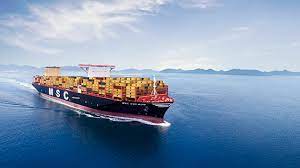
MSC and Chinese Research Institute ink decarbonisation agreement

GENEVA : MSC, the second-largest shipping line in the world and the China Waterborne Transport Research Institute, an agency under China’s Ministry of Transport, have signed a Memorandum of Understanding (MoU) agreement to develop decarbonisation and sustainability in the shipping industry.
Through the three-year agreement, both parties will jointly explore innovative ways to conduct relevant research and discuss progress to find solutions that “will make maritime transportation even more efficient while continuing to serve as the backbone of global trade,” explained a Swiss carrier’s representative.
The agreement which was signed on 28 September between the Executive Vice President Maritime Policy and Government Affairs of MSC Group, Bud Darr and the President of China Waterborne Transport Research Institute, Fei Wei Jun, in an online ceremony, constitutes the first MSC’s partnership with a Chinese institution for the decarbonisation process.
“Sustainability and focus on climate issues have been fast-rising up the agenda in China, and we are looking forward to closely collaborating with the China Waterborne Transport Research Institute to accelerate innovation and Research & Development (R&D) we urgently need to reach a net-zero carbon future for shipping,” stated Bud Darr.
Under the MoU framework, both partners will establish a process dedicated to R&D, knowledge sharing and business collaboration. In particular, a designated chairperson from each organisation will jointly lead the steering committee, with a working committee in charge of implementing the activities, while industrial experts will also be invited to conduct assessments on the results of the research studies.
A range of specific studies and projects are already lined up for the near future, including studies on the technical pathway and relevant policies for low-carbon development of the Chinese shipping industry, strategy and roadmap for the energy structure of shipping, according to a statement.
In addition to this initiative, MSC is also working to further improve the efficiency and to reduce emissions of its fleet with studies at different future fuel options such as hydrogen, ammonia, methanol and synthetic fuels.


